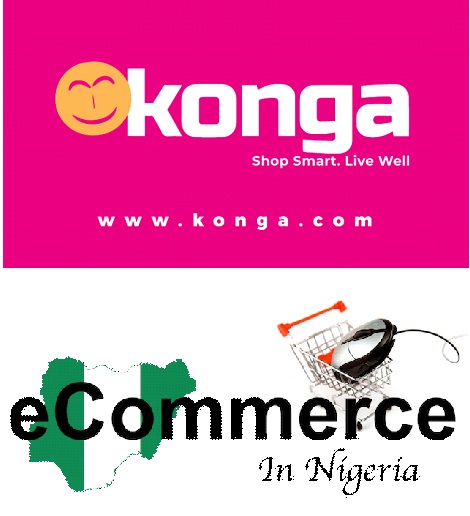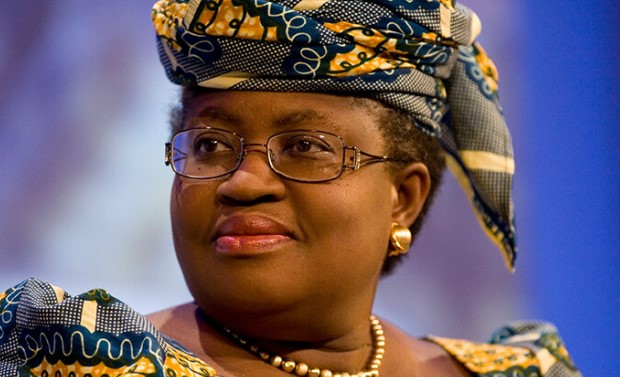News
How Konga is Bridging E-Commerce Gap for Millions of Unreached, Under-Served Nigerians

For a population of over 190 million, it is perhaps shocking to countenance the fact that about 70% of Nigerians – a whopping 130 million – are still skeptical of shopping online and yet to be captured in the e-Commerce net – an anomaly that Konga’s futuristic business model is gradually catering to.
According to latest estimates from the United Nations Conference on Trade and Development (UNCTAD), the global e-commerce market is worth around $22.1 trillion.
Data from research firm Statista also indicates that e-Commerce in Africa accounted for $16.5 billion in revenue in 2017, with forecasts estimating revenue in the sector to gross the $29 billion mark by 2022.
Interestingly, Africa’s share of the global e-commerce market is expected to grow even more significantly in the years ahead, backed by factors such as increasing levels of literacy, fall in average smartphone prices, mobile adoption, growing internet penetration and innovative payment solutions.
The foregoing has seen projections of Africa as the next emerging market to make significant strides in online shopping.
Perhaps justifying its status as the continent’s biggest market and most populous country, Nigeria is further estimated to play home to about 40% of the continent’s e-Commerce ventures within its shores – a positive development that has, nevertheless, failed in ensuring that the bulk of the country’s under-served or unreached millions partake in the e-Commerce revolution.
A number of factors are responsible for the current state of affairs.
Despite the sweeping changes caused by the e-Commerce bug which has bitten a lot of savvy Nigerians, shopping in Nigeria is still largely traditional and the issue of trust has further hindered the pace of growth.
Further adding to the dire situation is the sheer proportion of Nigerians who are left out of the equation.
Indeed, to millions of Nigerians who reside outside the cosmopolitan cities such as Lagos, Abuja and Port Harcourt, for instance, online shopping is a hard sell.
Through a realistic and well-thought out business model, Konga is gradually changing the narrative in the following ways:
Growing chain of nationwide physical retail stores: With over 30 brick-and-mortar stores spread nationwide and many more springing up all over Nigeria’s vast landscape, Konga has given millions of unreached Nigerians a reason to smile. A bold, ambitious plan to spread its tentacles across the length and breadth of the nation, with the establishment of at least one store in each of Nigeria’s 774 local government areas, will unleash the power of the country’s booming population and see e-Commerce finally achieving its huge potential in Nigeria and beyond.
Improved Logistics means swift delivery: Through Kxpress, its in-house logistics company, Konga boasts a considerable and growing fleet of line-haul trucks, vans, buses and motorbikes through which it has bridged the distance between the average shopper in the hinterlands and a taste of the e-commerce experience. Kxpress not only handles last-mile deliveries but has also received huge investment which has expanded its network. Also available are pick-up points and distribution centres in every part of Nigeria, further ensuring that more Nigerians can join the e-Commerce train.
Suite ofCutting-edge Payment Solutions: Riding on KongaPay, an internally-owned Central Bank of Nigeria (CBN) licensed payment system — Konga offers all classes of Nigerians a secure and reliable e-wallet that works with all banks in Nigeria. The app ensures that the customer’s money is held in escrow until a sales transaction is completed successfully. Through strategic partnerships with world-class payment solutions providers such as Visa, Konga has also ensured that this recurring pain-point is becoming a thing of the past. It is, however, through the other options it offers shoppers that Konga has distinguished itself. These include payment on delivery which it re-introduced in August 2018, payment on pick-up of items and cash payment in all of its stores nationwide.
Opportunity to self-fulfil: Nigerians love the physical touch that an offline or brick-and-mortar store offers. Through its nationwide network of retail stores, Konga has given millions of skeptical or under-served Nigerians a platform on which to play an active participatory role in e-Commerce. Shoppers in all nooks and crannies of Nigeria can visit a Konga store of their choice to pay and collect any item of their choice, while for many others, the store represents a useful pick-up location for self-fulfilling their online orders. What’s more, a visitor to any of the stores can choose to place an order for a physically unavailable item(s) for delivery to their homes/locations or personally pick-up at a later date.
News
Okonjo-Iweala Urges Nigeria to Shift from Importing Tech to Local Manufacturing

Dr. Ngozi Okonjo-Iweala, Director-General of the World Trade Organisation, WTO, has urged Nigeria to move decisively beyond importing technology to manufacturing it locally, warning that sustained dependence on foreign technology weakens the country’s industrial base and constrains job creation in the digital economy.

Speaking at Ahmadu Bello University, ABU, Zaria, Okonjo-Iweala said the current disruption of the global order, driven by technology, geopolitics and climate pressures, presents both serious risks and unprecedented opportunities for Nigeria and Africa, if they are prepared to act strategically.
“It is always a pleasure to come home to Nigeria, but it is particularly special to be here at one of the country’s most important seats of learning,” she said, stressing that universities such as ABU must remain central to Africa’s technological, industrial and economic transformation.
Tracing Nigeria’s post-independence journey, Okonjo-Iweala recalled that at independence in 1960, the country had only one degree-awarding institution, making the rapid expansion of universities a critical pillar of nation-building.
She noted that institutions such as ABU laid the foundation for Nigeria’s scientific, technological and entrepreneurial capacity.
Founded in 1962 as the University of Northern Nigeria, ABU has evolved into a multidisciplinary institution producing graduates across engineering, medicine, sciences, ICT, public administration and the humanities.
“Research conducted here has advanced the frontier of knowledge and offered practical solutions to real-world problems, from animal feed innovations during dry seasons to wind power generation in rural areas,” she said.
Turning to global trends, the WTO chief identified technology, particularly the internet and artificial intelligence, AI, as one of the most disruptive forces reshaping trade, production and employment worldwide.
“The technological shift we are experiencing has made it easier to communicate, produce and trade, but not everyone has shared equally in the gains,” she said, warning that automation and AI could deepen inequality if not properly managed.
She stressed that multilateral institutions and global trade rules must evolve to respond to emerging technologies such as AI and quantum computing.
“We need a new kind of multilateralism, one that is nimble, responsive and capable of addressing new global opportunities,” she said.
Okonjo-Iweala said Africa stands to benefit from what the WTO now describes as “re-globalisation”, the diversification of global supply chains away from over-dependence on a few countries.
She identified opportunities in labour-intensive manufacturing, critical minerals processing, renewable energy technology, pharmaceuticals, agro-processing and electric vehicle, EV, supply chains.
“Africa has the capacity to process its critical minerals all the way to EV battery manufacturing,” she said, pointing to Nigeria’s emerging lithium processing investments and vast renewable energy potential.
Reinforcing her call for local technology production, she said Nigeria must stop importing technologies it can manufacture domestically.
“Instead of importing solar panels, we should be manufacturing them here. That is how we create jobs, build resilience and grow our economy,” she said.
Okonjo-Iweala warned that Nigeria’s projected economic growth of 4.4 percent remains insufficient once population growth is factored in, calling for sustained growth of 6 to 7 per cent driven by productivity, technology and value addition.
She said achieving this would require strong digital infrastructure, skills development and innovation-friendly policies, alongside full implementation of the African Continental Free Trade Agreement, AfCFTA.
“Technology-enabled trade and deeper regional integration could increase intra-African trade by up to 45 per cent and lift millions of people out of poverty,” she said.
With Africa projected to account for about 25 per cent of the global working-age population by 2050, Okonjo-Iweala described Nigeria’s young population as one of its greatest technology assets.
“On an ageing planet, Africa’s youth represent the world’s future talent pool,” she said, urging universities, policymakers and the private sector to better align education, innovation and industrial strategy.
She, therefore, called for stronger collaboration between academia, industry and government to ensure Nigeria does not miss the opportunities created by global technological disruption.
“This country has what it takes. What we need is urgency, coordination and the courage to invest in our people and our ideas,” Okonjo-Iweala said.
News
Stanley Amandi, Nollywood Actor Arrested over Alleged Coup Plot against Tinubu

Stanley Amandi, veteran Nollywood actor and filmmaker, has been arrested by the Nigerian military over his alleged role in a foiled coup plot to overthrow President Bola Tinubu’s government, according to an exclusive report by Premium Times.

Stanley Amandi, Nollywood Actor
The filmmaker, also a former chairman of the Actors Guild of Nigeria (AGN) Enugu State chapter, was reportedly detained in September 2025 alongside several military officers accused of planning a violent overthrow, including potential assassinations of top officials, according to the newspaper’s sources.
Reports indicated that the coup plotters planned to wholesale assassination of top government officials including President Tinubu, Vice President Kashim Shettima, Senate President Godswill Akpabio, and Speaker of the House of Representatives Tajudeen Abbas, among others.
On Monday, the Defence Headquarters confirmed the plan to illegally oust the Tinubu administration, saying the indicted officers will be arraigned before military judicial panels.
In its statement, the Defence Headquarters said the investigation has been completed and forwarded to “appropriate superior authority in line with extant regulations.”
According to the military, the investigation was “comprehensive” and conducted in line with established procedures, examining “all circumstances surrounding the conduct of the affected personnel.”
The military disclosed that the findings identified “a number of the officers with allegations of plotting to overthrow the government,” describing such conduct as “inconsistent with the ethics, values and professional standards required of members of the Armed Forces of Nigeria.”
Mr Amandi has featured in many Nollywood movies and is known for his work as an actor, production manager and director.
His notable works include “The Album,” where he served as director; “Tiger King,” where he also served as director and produced in 2008; “Cornerstone,” produced in 2019; and “Once Upon a Dream,” in which he appeared as an actor in 2024.
Mr Amandi’s last Instagram post was on 19 September 2025, shortly before his arrest.
News
Firms Commit to Boost African Robotics Market

AfricAI and Micropolis Robotics have signed a multi-year exclusive distribution and deployment agreement, which marks one of the continent’s most significant robotics market entries.

Micropolis AI Robotics is a United Arab Emirates-based robotics manufacturer operating in autonomous systems, while AfricAI is a company building practical, revenue-driven artificial intelligence (AI) systems for African businesses, governments, and global partners operating in emerging markets.
According to the agreement, Micropolis Robotics named AfricAI as its exclusive continental partner, prohibiting direct sales, alternative distributors, and third-party agents from operating in the territory.
The partnership establishes AfricAI as the primary execution, localisation, and go-to-market platform for intelligent robotics in Africa’s industrial, security, logistics, and infrastructure sectors.
AfricAI said this exclusive mandate positions the company as the gateway for advanced autonomous systems entering African markets, ensuring regulatory compliance, local capacity building, and sovereign control over deployment frameworks.
The partnership, according to the two parties, moves beyond software- based AI into the realm of physical AI — intelligent machines capable of operating in complex, real-world African environments.
“This is not a collaboration, it is a market-shaping mandate,” said Fareed Aljawhari, CEO of Micropolis Robotics. “AfricAI now represents the exclusive gateway through which Micropolis technologies enter Africa. Their sovereign AI vision, operational reach, and regulatory fluency make them the only partner capable of executing at a continental scale.
Furthermore, the agreement enables AfricAI to integrate Micropolis’ autonomous robotics systems with AfricAI’s sovereign AI stack, resulting in AI-powered security and surveillance platforms, robotics-enabled logistics and port operations, industrial automation, smart infrastructure, and municipal robotics tailored to African operating conditions.
Initial deployments will commence in security, smart infrastructure, and logistics, with phased expansion across multiple African states as part of AfricAI’s broader continental AI, data, and intelligent infrastructure strategy.
The agreement also includes long-term performance-linked expansion rights, automatic renewals, and a defined localisation framework to support robotics deployment, workforce training, and skills transfer across Africa.
Prince Malik Ado-Ibrahim, executive chairman of AfricAI, said: “Africa does not need imported automation — it needs sovereign, context-aware intelligent systems. This exclusive mandate allows AfricAI to industrialise robotics deployment at scale while retaining control, compliance, and value creation on the continent.”

 Telecom2 days ago
Telecom2 days agoPolice Bust ₦7.7bn Telecom Hack Gang, Seize 400 Laptops in Massive Fraud Swoop

 General News2 days ago
General News2 days agoNaira Smashes Through ₦1,400 Barrier in Official FX Rally

 General News2 days ago
General News2 days agoNCC Slaps ₦250,000 Fee on Trial Licences to Spur Telecom Innovation

 News2 days ago
News2 days agoFirms Commit to Boost African Robotics Market

 E-Financial2 days ago
E-Financial2 days agoUBA launches instant digital platform for seamless account opening across Africa, diaspora

 E-Financial2 days ago
E-Financial2 days agoKuda MFB Secures National Microfinance Banking Licence, Sets Stage for Nationwide Growth

 Telecom2 days ago
Telecom2 days agoAmazon Axes 16,000 Jobs Worldwide in Major Restructuring Push

 General News2 days ago
General News2 days agoKaspersky Reveals How Digitalisation is Influencing Family Life

























